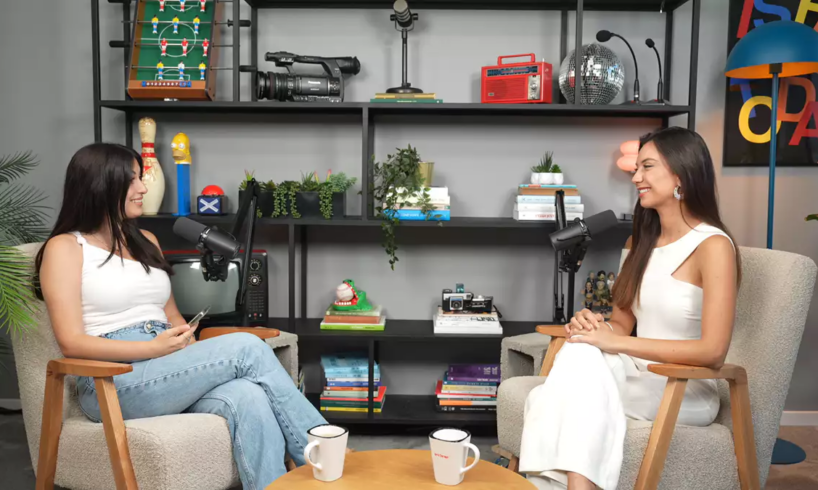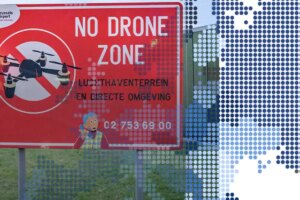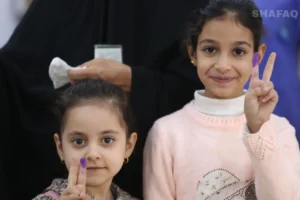
Drama seems to surround every international competition involving Israel these days. Against the backdrop of examining Israel’s participation in Eurovision 2026 and Spain’s decision to boycott the competition, the demonstrations during the Vuelta de España cycling race, and the official announcement of Israel’s removal from Giro d’Italia, comes the turn of another veteran competition to which an Israeli delegation is sent – Miss Universe.
Beyond the obvious challenges facing the Israeli representative, this year the competition takes an additional turn – “Miss Palestine” will participate for the first time in the competition’s approximately 70-year history, and on the glamorous stage in Thailand next month, an unprecedented encounter is expected alongside the 58 other delegations from around the world.
A great responsibility rests on the shoulders of 26-year-old Melanie Shiraz, who has been chosen to represent Israel, particularly in light of the new circumstances. However, she doesn’t seem troubled. “As someone who built a company, I think I experienced the maximum level of mental overload,” she says with a smile when I ask her about this. “When I’m driven to do something and when I really believe in it, it makes it easy. It might be overwhelming, but in the best kind of way because I know that what I’m doing is making a difference.”
Not just a “pretty face”
For Melanie, it’s essential to emphasize that she’s not just a “pretty face” with an enviable resume at her young age – she holds two bachelor’s degrees from UC Berkeley, a master’s degree from Tel Aviv University, and is the founder of a company in the fintech sector. Surprisingly, the next challenge on Melanie’s list was precisely to represent Israel in the Miss Universe competition.
Q: What you’ve accomplished at just 26 is incredible. Why would you compete in Miss Universe?
A: “I have a very strategic way of thinking, and that’s why I really love entrepreneurship and tech. And I think that, as somebody that’s also very passionate about Israel and Israel advocacy, that ‘fire’ started when I was at Berkeley because it was very necessary there. I just saw it as a strategic opportunity where I was thinking, you know, we’re represented in Eurovision, in FIFA, and we’re part of a lot of international conversations. Then I realized, we are not part of this conversation, and I just saw it as an opportunity to go, as somebody that’s not from a modeling background and not from entertainment, but rather somebody that has a lot of interesting perspectives and things to share. We had a delegate last year, but before that, there were two years that we were not represented, and I think that that’s very damaging for us.”
Q: Israel’s global reputation probably couldn’t have been worse at the moment. Do you honestly think there’s a good chance for you to win?
A: “I would like to think so. I would like to think that politics shouldn’t even play a part in a competition like this, because I think that this kind of competition is just apolitical in a way, for countries to come and put their disputes aside and actually bring forward a very positive message. There have been certain things that have unfolded that have made the participation, for me at least, a lot more hostile, which has not been very pleasant, but I’m trying to make the best of it.
“I hope you end up like the hostages”
Q: Are you worried about the possible backlash you might get for representing Israel?
A: I’ve already gotten backlash, and I always expect to get backlash. I do think that it has been worse this year because of the situation that we’re in after October 7th, and the very negative perspectives a lot of people in the world have. Since the Miss Palestine situation has unfolded, it’s been exponentially more than it was before. I’ve gotten people probably paying for bots that just completely ambushed my account with thousands of ‘free Palestine,’ ‘baby killer,’ and other horrible death threats my way, which has sucked.
“I expected it, but one thing is to expect it, and then there’s one thing to get a message saying, ‘I hope you end up like one of the hostages, I hope you suffer the same fate, she was shot in the head and carried naked on a truck. Some of those things send chills down my spine, and it’s made me worry a little bit about my security.”
Q: We saw what happened with both Yuval Raphael and Eden Golan, our representatives at Eurovision in 2024 and 2025.
A: “At the end of the day, they both placed pretty highly. So I think that there’s a very vocal minority of people that really hate us. I think at the end of the day, both of them proved that they’re able to transcend politics with their talent and with the beauty that they have to bring to the world, and that’s exactly what I’m hoping that I’ll be able to do.”
Q: We have to address the elephant in the room. This year is quite unprecedented for Miss Universe because, for the first time, we have a new delegate – Miss Palestine. How did you feel when you heard the news for the first time?
A: “I won’t lie and say that I wasn’t surprised. The reason I was surprised is just because it seems to be a very political move from a seemingly nonpolitical organization. But on the other hand, I can look at it and say, you know what? I appreciate the organization for putting politics aside and wanting to empower women to speak no matter where they’re from.
“I think we’re here to embody peace and coexistence and bring forward very positive messages to the world. And so I think engaging and speaking about another person’s country and spreading misinformation, for example, is not something that’s appropriate. I think she is using her messaging to be very political and anti-Israel. And so I think that that inadvertently sends her audience to come for me. It’s spreading information like ‘680,000 Palestinians have been killed since October 7th.’ Not even Hamas is backing those numbers. She has a very large following, and I think it’s quite careless.”
“We’re fighters”
Against this backdrop, Melanie emphasizes the need for support ahead of the competition, which, like many others, also relies on public voting. “A hardship I don’t blame Israelis for, because I think they’re very tired of all of this stuff; it’s been the lack of support. I know that they would support me if they knew of me and what I’m doing, the importance of it. But there are so many headlines every day…I’m very low down on the list of priorities. But I have the opportunity as an Israeli to reach millions. That’s why I’m here, saying that the support of Israelis is very important. We’re fighters, and every Israeli and Jew – as soon as they’ve heard of me – they were so fervently behind me. I think we have to put aside some space for representatives of Israel on cultural and not just political platforms.”





